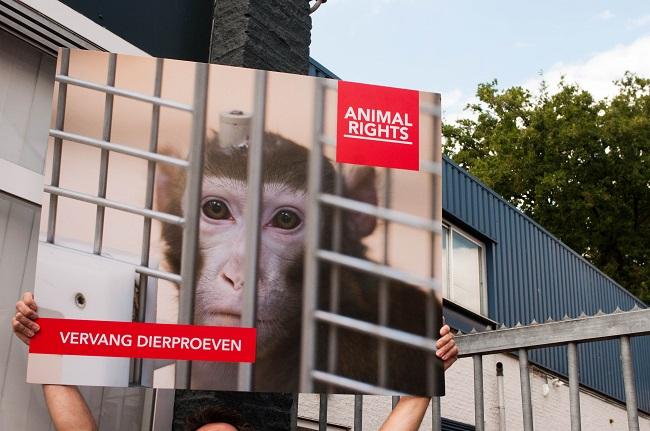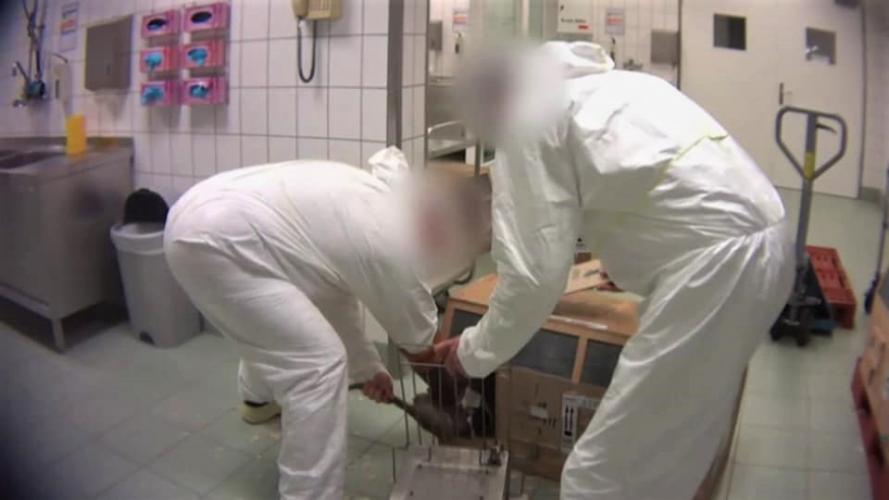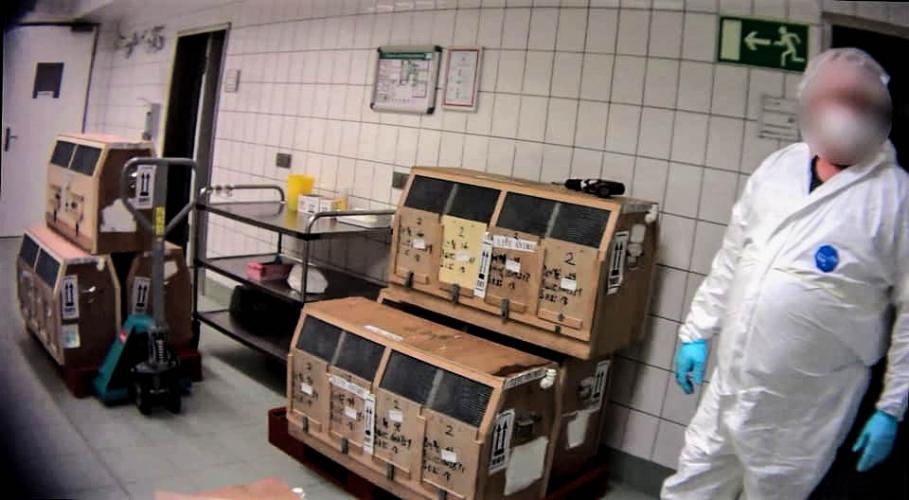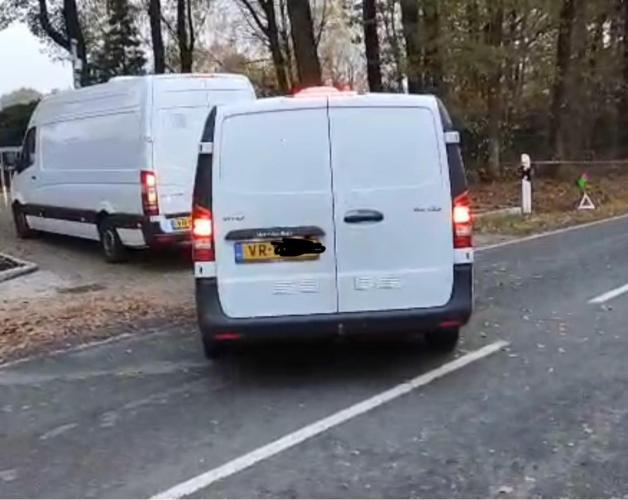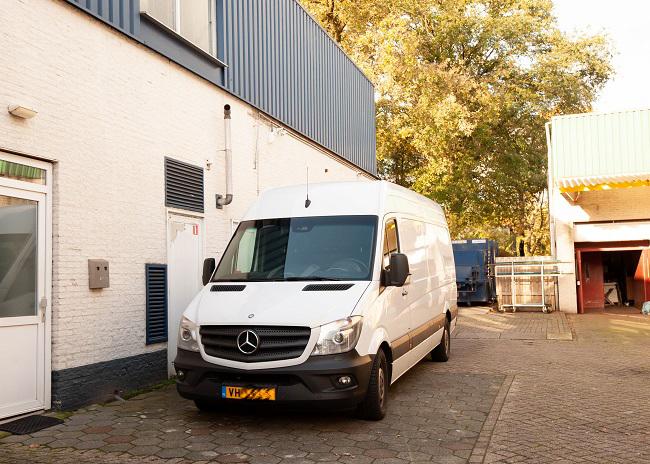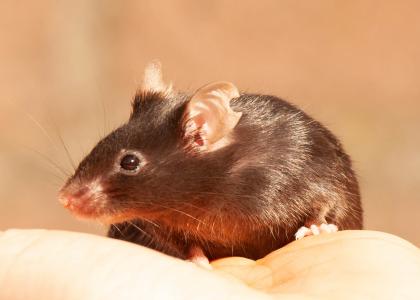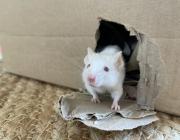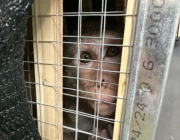Inhoud
monkey trader Hartelust
Since 1974, the private enterprise Hartelust is located on a small industrial area in Kapelmeesterlaan in Tilburg (the Netherlands). Proprietor Roberto Hartelust has a permit to hold 1,080 monkeys simultaneously in a warehouse. The monkeys are being sold as laboratory animals to universities, commercial animal lab centres and pharmaceutical companies.
Family Business
Roberto Hartelust took over the company in 1974 from his father: he once worked for KLM (Royal Dutch Airlines) and was responsible for the monkey transports from India to America. According to Hartelust, you have to be "a great animal lover to do this. Man has placed itself on top of the food chain. No matter how bad it is, animal testing has to be done.” Meanwhile, his sons also work in the monkey trade.
The inspection service NVWA (Dutch Food Safety Authority) checks the ape warehouse in Tilburg once or twice a year.
Hartelust does not always meet the minimum housing requirements, which set forth that per two monkeys there should be 2 m2 of floor surface and a total of 3.6 m3 of cage volume. What stands out, is that male monkeys are occasionally being held separately when they are aggressive. The remaining monkeys are held in bathroom-like spaces on sawdust for months at a time.
Monkeys might be caught from the wild
In one of his sparse interviews, Hartelust confirms that he has been obtaining monkeys from China since 1992. In China he employs five people. It mainly concerns Rhesus-monkeys, and in lesser volumes, Java-monkeys. According to inspection reports, Java-monkeys are also being procured from Africa. Hartelust claims that wild-catch is out of the question.
In the report “Usage of Non-humane Primates” from the Royal Dutch Academy of Science (KNAW), the appeal is made to only buy monkeys from the Biomedical Primate Research Center (BPRC) in Rijswijk (and accordingly not from Hartelust). The KNAW states: “The typification and microbiology of these animals is well-known, and it is certain that these animals were not obtained through wild capture. There would have to be convincing arguments to deviate from acquiring monkeys through the BPRC”.
In other words, it cannot be ruled out that Hartelust’s monkeys, or the parents of the bred monkeys, originally came from the wild. Moreover, Animals Rights is also not in favour of making a monkey-breeding centre out of the BPRC.
In 2019, a whopping 2,735 Java-monkeys were confiscated by the Chinese government. The animals had been smuggled from Vietnam and were designated for animal testing facilities. Over the past years, media reports have frequently been released concerning the wild-capture of monkeys in China’s neighbouring countries. Successively, the animals are taken to Chinese labs and breeding farms.
Transport
The monkeys are transported from China and brought to aviation centres such as Paris or Frankfurt. This easily takes up to a day of transit. During this entire time, they are held in small wooden crates with some straw, food and water.
Employees of Hartelust collect the animals in white vans and take them to the warehouse in Tilburg, where they are quarantined for 12 weeks. According to Hartelust, approximately 1,000 monkeys are being held in the warehouse: "And they come and go all year long.”
In Europe, between 6,000 to 10,000 monkeys are being used in animal testing. A large share of these animals originates from the monkey-warehouse in Tilburg.
Hartelust says the following about the buyers of the test-monkeys: “Large pharmaceuticals. Practically all big European players order their monkeys from us. Usually this implicates hundreds of monkeys being transported in groups of 60 animals simultaneously.”
Besides the commercial animal testing centre LPT (Laboratory of Pharmacology and Toxicology), the university KU Leuven, the University of Parma and the primate laboratory at the Karolinska Institute in Stockholm are also well-known customers. Regarding the live undercover footage that regularly surfaces, Hartelust responds innocently: “We have no influence on that.”
No ambition
The Party for the Animals (i.e. the Dutch governmental political party for animal rights) asks Minister Schouten: “Do you share the opinion that the Dutch ambition to reduce the number of animal tests on monkeys is undermined, if the Netherlands functions as a transit hub for monkeys to foreign animal testing centres? And if you do not, why not?”
The Minister responds to the parliamentary questions: “No, the commercial activities of a company in the Netherlands has no influence whatsoever on the cabinet’s ambition to reduce the number of animal tests performed on monkeys in the Netherlands.”
It is bizarre that the Minister drastically reduced the permitted number of monkey experiments, yet successively makes no effort to impede the biggest monkey trader in Europe.
